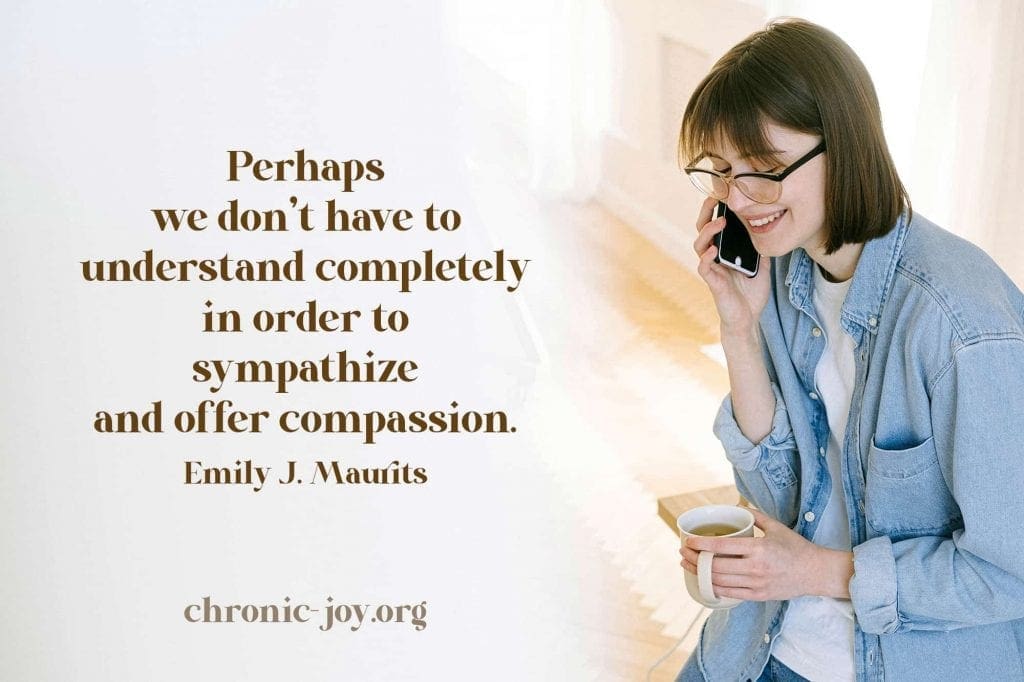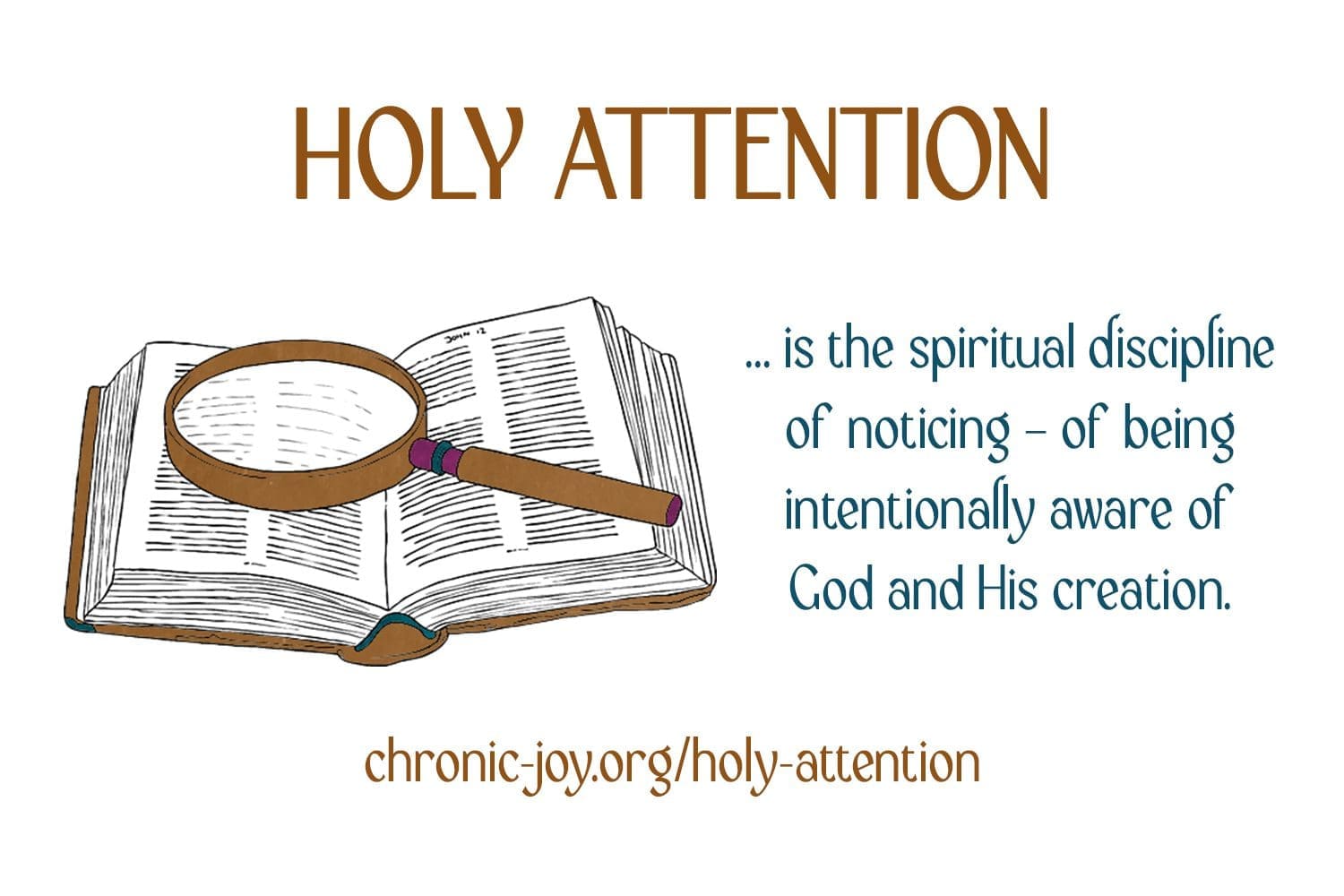
“Perhaps we don’t have to understand completely in order to sympathize and offer compassion.” Emily J. Maurits
WATCHING LONG DISTANCE FEELS LESS REAL
It’s difficult to care as much about something when you’re not confronted with it daily. We are often more distressed about our three-year-old’s tantrum than a war in a third-world country.
What we see and experience affects us. What we experience personally seems more real, not only because we are firsthand witnesses but because it disrupts our lives.
Watching when we do not see our loved ones regularly is more difficult. It is genuinely hard to place as much importance on their struggles, not because our love is less, but because it takes up less of our day.
What should we do?
There is only one solution.
WE MUST ACTIVELY CONFRONT OURSELVES WITH THEIR SUFFERING
We have no choice when we are residing close by, but when we are further away, we must consciously and regularly choose to see our loved one’s pain.
So, let’s:
- make phone calls or send emails or texts to keep up-to-date with their lives. After all, it is hard to remember when the next appointment is when we don’t have to drive them to it.
- schedule time into our lives to bring our loved ones to mind and pray for them.
- try to remain in constant dialogue. This is hard. It takes more effort than ‘normal’ watching because it’s avoidable. It is not forced upon us; it’s a choice. It often involves juggling time, motivation, and common sense — but it is possible.
WATCHING LONG DISTANCE – WE MAY NOT UNDERSTAND
Sometimes, words alone just don’t cut it. With long-distance watching, we may not understand as much as when we are with our loved ones. A wealth of knowledge is communicated through silence, body language, and simply being with a person during the ups and downs of everyday life.
When living far away from our loved ones, we simply cannot understand their day in the same way as if we had lived it by their side.
We may intellectually understand what they are telling us — but we can’t palpably feel the despair, see the little wrinkle above their eyes, note the straining of their fingers, catch the momentary disappointment when a good day is eaten up by pain, or ache at the passing hurt when someone doesn’t notice they are missing from a gathering.
What should we do?
What can we do? We are not superhuman, yet we can genuinely try to understand and feel what they are telling us.
- Perhaps we can attempt to visualize the situation. Listening carefully to each word takes effort and concentration instead of simply nodding and grunting, letting our minds drift to other things as we hold the phone to our ears.
- Let’s pray for aid — for ourselves as much as for our loved ones.
- Let’s be eager to admit we do not and cannot understand fully, yet are willing to try. This takes humility.
Perhaps understanding is less important than love when all is said and done. Perhaps we don’t have to understand completely to sympathize and offer compassion. Perhaps it is enough to pray and to try.
As we watch from far away, we can feel left out.
The truth is we are left out.
We used to be entwined with our loved ones’ lives and involved in their daily struggles. When we moved away, this ended.
We miss out on things – events, details, facts, updates, and reports. Information is always lost in communication. We will be excluded from their misery and also from their triumphs. We cannot weep, and we cannot celebrate — and others can.
This hurts.
What should we do?
Remember, we are not defined by our status as a watcher. Our value is not in how useful or involved we are. A non-watcher is no less important than a watcher.
A remote watcher is no less valuable than a close watcher. We are what we are. Let’s embrace every situation as a means to honor God and love one another.
We can pray continually for contentment.
Watching remotely leaves us feeling extremely helpless.
After all, we are doing much less for them than we previously did.
We receive reports and updates, yet we are left with little room to respond. Watching from a distance becomes more ‘one-way,’ which is difficult. It can leave us feeling useless, and this can result in guilt. We may feel like we are failing in our role as a friend, mother, or brother.
Our loved one’s illness can seem even more depressing because we often hear bad news more frequently than the tiny and perhaps unnoticed victories.
What should we do?
Perhaps we need to remind ourselves that watching by itself doesn’t save anyone.
We cannot change the situation; our role is not to rectify it. God alone can do that, and He is still working in our loved one’s life, regardless of whether we are present. Let’s turn to Him in prayer and faith as the needy, helpless people we are.
It is all in His hands.
Should we watch from a distance?
This is a difficult choice to make.
Watching from afar is a continual series of decisions. Will I ring them this evening even though I’m exhausted from work? Does it really matter if I text them or not this morning? I need a break; perhaps I can go another month without visiting.
There are no right or wrong answers – but we all know what love looks like.
What is important is that we do not go into remote watching full of misplaced expectations. Instead, let’s enter the situation prepared to struggle, prepared to sacrifice, prepared to be lonely, and prepared for victory.
First published at calledtowatch.com. Published with permission.


Emily J. Maurits
Chronic Joy® Contributing Writer
After working for several years in public health, Emily is studying theology. She believes we are all called to love suffering people because it is what Jesus did. She is passionate about equipping and encouraging others to do just that and founded calledtowatch.com for the family and friends of those with chronic illness. As well as uncovering God's presence in the chaos of life, she enjoys reading, running, and writing. Check out her memoir Two Sisters & a Brain Tumour.

Holy Attention
Holy Attention, the spiritual discipline of noticing (of being intentionally aware of) God and His creation, draws us into fresh gratitude, recognizing His Hand in every atom of creation.

Recent Comments